October 7, 2024 | 14:48 GMT +7
October 7, 2024 | 14:48 GMT +7
Hotline: 0913.378.918
October 7, 2024 | 14:48 GMT +7
Hotline: 0913.378.918
On July 10, the Ministry of Agriculture and Rural Development organizes a forum to connect agricultural science and technology products with businesses, cooperatives, and the public. Vietnam Agriculture News kindly introduces our readers to insightful conversations in the forum.
A message was sent to Minister Le Minh Hoan by a representative of an agricultural enterprise in Vinh Phuc, who expressed the sentiments of companies engaged in the processing of agricultural products.
This enterprise defines agriculture as a diverse array of activities, such as crop cultivation, livestock husbandry, veterinary medicine, and processing. However, agricultural product processing is a particular concern for numerous companies, despite their success in these fields. Crop cultivation is restricted in Vinh Phuc, and a significant portion of the acreage is left fallow during the winter season. Cultivation and refining are the primary factors that motivate the agricultural sector upward. The organization is diminutive, with annual revenues that amount to only a few tens of billions of VND. Nevertheless, this sum denotes a substantial quantity of products utilized in the cultivation of crops.
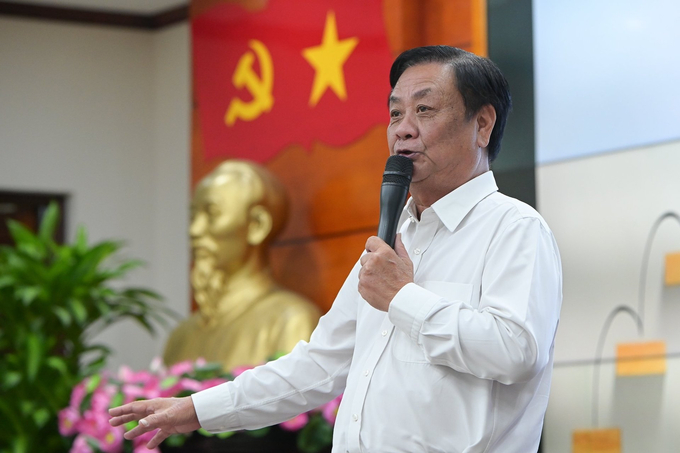
MARD Minister Le Minh Hoan shared that the Ministry of Agriculture and Rural Development's leadership maintains that the market's elimination results in enhancements in all areas. Photo: Tung Dinh.
For instance, his organization is engaged in the vegetable industry. At present, a significant quantity of potatoes is imported, and Vietnam also produces some. The unfortunate truth is that Vietnamese potatoes experience escalating losses as they are cultivated. This is attributable to the absence of processing stages. For example, potatoes are imported at a minimum price of 50,000 VND per kilogram for use in restaurants, hotels, and BBQs, while producers are only able to sell their produce for a few thousand VND per kilogram. For months, we have been unable to locate even a serrated knife that is suitable for processing potatoes - a minor item. In these circumstances, how can we remain competitive?
Minister Le Minh Hoan expressed the following in response to the communication from a company regarding potatoes: "I would headline this: 'We have many scientists but are unable to produce a potato peeler.'" The Minister also emphasized the issue of the market segment: Competition is challenging since large-scale producers produce millions of blades, while we produce only a few thousand. Why has no other brand been able to surpass Gillette in the production of razors, despite centuries of research?
Minister Le Minh Hoan underscored the necessity of "collaboration to connect" and a comprehensive understanding of the "Science and Technology Market" to resolve the issue, with the primary objective of enhancing farmers' incomes. "Why do we refer to it as a market?" A marketplace is a point of convergence for supply and demand. It is commonly believed that a market is not the result of a few individuals, but rather of hundreds of sellers and thousands of consumers. Competition in a market will serve as an incentive for enhanced performance. Products of inferior quality will be eliminated. The Minister observed that individuals who are unable to sell their products will query their abilities and endeavor to enhance them.
The Ministry of Agriculture and Rural Development's leadership maintains that the market's elimination results in enhancements in all areas. Research institutes have the right to select from a variety of enterprises, and enterprises have the right to choose from a variety of research institutes. This is the fundamental principle of supply and demand. We will not achieve much by merely connecting the two.
We must improve our thinking and actions. The Prime Minister has also overseen the advancement of science and technology. Science and technology are essential for success; without them, we are doomed to failure and complacency. We must contemplate whether we can improve and expand our innovation. In a few years, the innovation of today must be further refined.
An independent research institute is incapable of comprehending the market; this is where enterprises are necessary. Consequently, collaboration and linkage have a more profound significance than merely "capital." We must abandon the notion that we have "done our best." This line of reasoning is faulty. Our products are not in the final stage. The world has made significant strides toward green transitions and green emissions.
Upon reading books from China, I observed that they convene weekly to have tea, exchange information, and gain a deeper understanding of one another, thereby preventing frustrations. I consistently attend to the frustrations associated with the agricultural sector; however, we must also devise methods to liberate ourselves. A scientist once asked me, "How do we determine the market's characteristics?" The state should acquire all assets and subsequently dispose of them.

Similar to the saltiness or sweetness of water, crustaceans, and fish are the first to taste it. Enterprises will consistently surpass the state in this regard. Photo: VNA.
That assertion is inaccurate. We must conduct research that is consistent with the market. Enterprises are the first to become aware of any market changes. Similar to the saltiness or sweetness of water, crustaceans, and fish are the first to taste it. Enterprises will consistently surpass the state in this regard. For what reason? The prosperity of enterprises is contingent upon the market, as it is the lifeblood.
In the past, when rice prices decreased and I was the provincial chairman, I directed the Chief of Office to arrange a meeting with enterprises. All issues were promptly resolved. Promoting a product that involves local authorities, businesses, and scientists is significantly simpler. Businesses frequently request assistance; however, they are unable to provide a specific type of assistance when requested. I remain optimistic that the agreements are sincere and that we will reconvene the following month to assess their efficacy. They must be functional, not merely for demonstration. The meeting should focus on the enhancement of the product, rather than solely on trading.
It is a falsehood to assume that we should not interact with small or micro-enterprises because we are scientists. That is not the situation. We are present to support the national cause and assist producers and the agricultural sector in their progress. Institutes and scientists can comprehend market requirements and research directions with the assistance of businesses.
An entrepreneur recently sent me a glove that was specifically designed for women to use when cutting chile peppers. It reminded me of the women in my community who required multiple buckets of water to be present when dealing with chilies by hand. Science can be complex, but it can also be straightforward—yet it is immensely beneficial to millions of women. A single item of that nature has the potential to assist an infinite number of individuals from Lao Cai to the South.
I am interested in motivating research institutes to prioritize "useful solutions." Think of the producers and consider how to alleviate their burdens. This is also a recommendation for scientists: engage in conversation with farmers; their insights can inspire an abundance of innovative ideas.
Translated by Linh Linh
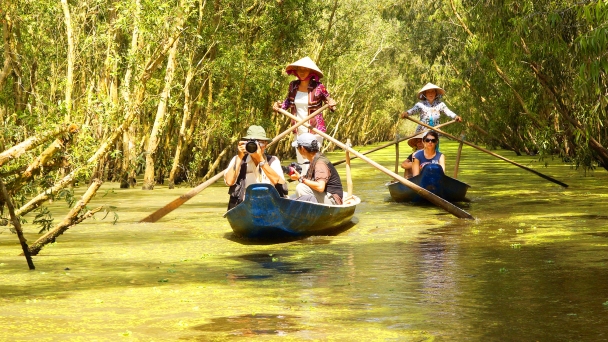
(VAN) The project will assist the Tra Su forest management board in planting 60ha of new forest and nurturing 100ha of degraded forest, restoring habitats and native species.
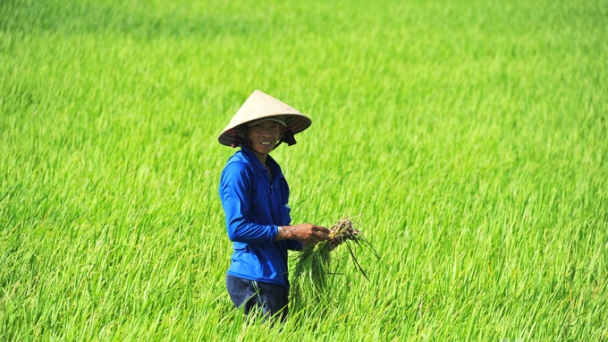
(VAN) Low-emissions rice production becomes a mandatory requirement of international integration, an important factor in the production of export goods.
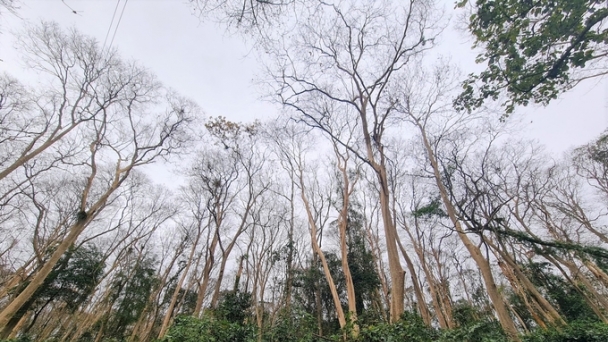
(VAN) Possessing the largest forest area in the country and an extensive agricultural land fund is a solid foundation for Nghe An to participate in the potential carbon playground.
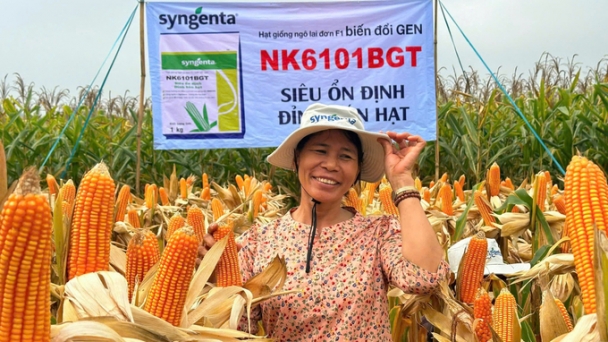
(VAN) Over the 10 years since genetically modified corn was recognized in Vietnam, Dr. Dinh Cong Chinh (Department of Crop Production, MARD) believes that it is necessary to reassess and improve annual corn productivity.
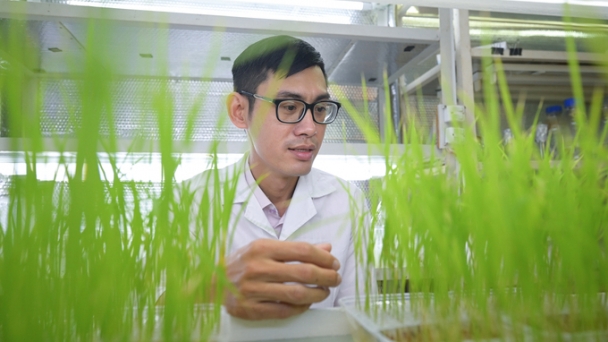
(VAN) The Agricultural Genetics Institute has made significant strides in researching rice varieties resistant to bacterial leaf blight, particularly focusing on the TBR225 and Bac Thom 7 strains.
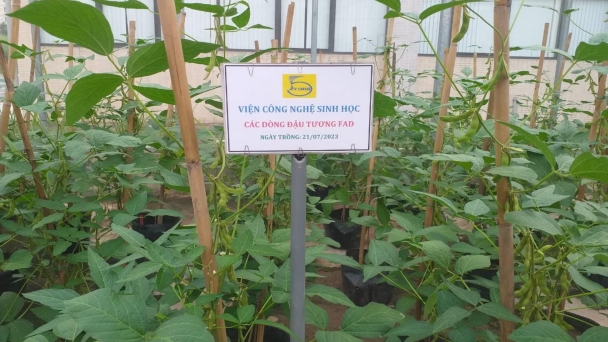
(VAN) Researchers at the Institute of Biotechnology have successfully developed and mastered genome editing technology using the CRISPR/Cas system.
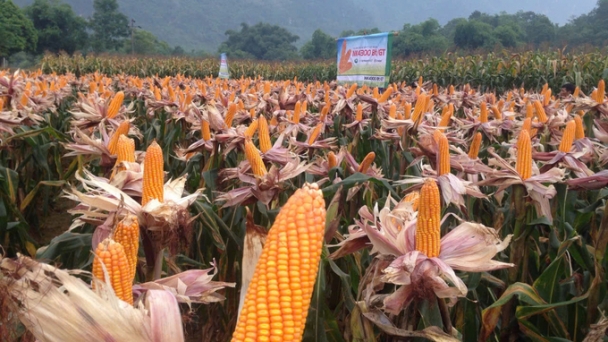
(VAN) The Deputy Director of the Department of Science, Technology, and Environment addressed several concerns regarding biotechnology, as well as the current state of affairs and potential solutions in Vietnam.